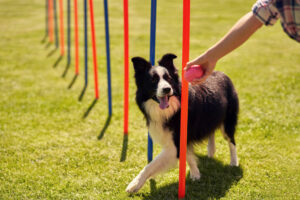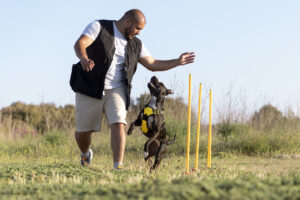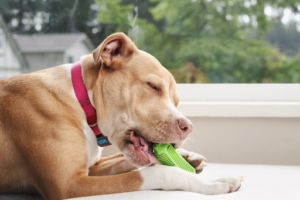There could be many reasons why your dog is refusing to eat, ranging from lack of appetite to stomach disorders. A decreased appetite may turn out to be a serious issue in the long term, as low weight could have grave consequences for a dog’s health and wellbeing. Find out why your dog is not eating well before their loss of appetite spirals into a major health problem.
When Your Dog Refuses to Eat
Many parents often perceive their dogs as finicky eaters, as they often develop their own choices and dislikes for different foods. However, if your dog is consistently refusing food, the problem could be much more serious. You should be worried if your dog:
- Does not eat at all
- Refuses to eat dog food
- Experiences frequent loss of appetite
- Is no longer tempted by food
- Has a reduced appetite
Whether it is a sudden or gradual decrease in food intake, you should immediately pay attention to your turning down a bowl of food. If you neglect to do so, this could cause multiple issues. When you have a puppy, their loss of appetite may impact their growth. If you have an adult dog, it may lead to behavioral changes and reduced physical fitness. Without proper intake of food and nutrition, senior dogs soon turn frail with reduced immunity, which may adversely affect their aging body and longevity. Dogs refusing to eat are likely to retreat to seclusion and avoid social contact.
Health Issues Forcing a Dog Not to Eat
Underlying health problems could be the most common reason behind your dog refusing to eat. Here are some of the other most common reasons:
- Upset Stomach: A dog with an upset stomach may refuse to eat for two to three days. While refusing to eat, the dog will probably prefer remaining alone to rest. There may be diarrhea or vomiting too. During this time, it’s important to make sure that your dog has plenty of water and liquids when refusing to eat.
- Hemorrhagic Gastroenteritis: A severe form of a stomach problem, it accompanies diarrhea and leads to quick dehydration. If your dog is refusing to eat and has these symptoms, arrange a quick visit to the vet. The problem can cause additional complications in smaller dogs unless treated early.
- Pancreatitis: An inflamed pancreas is common in obese dogs. A high level of fat in the blood leads to your dog’s pancreas inflaming, reducing the secretion of digestive enzymes and leading to a loss of appetite.
- Toxicity: Increased toxicity in the body may be another reason for a dog not to eat. This may result from a dog eating an insect, plant, chocolate, or rotten food.
- Other problems: Medications such as corticosteroids, indigestion, fever, a tooth infection, and physical pain or discomfort also cause loss of appetite in dogs.
Is Diet an Issue?
Dietary habits may contribute to your dog’s refusal to eat. For instance, your dog, having had fatty food continuously for a few days, may prefer to take a break from that. This is a self-induced attempt on the dog’s part to take care of the digestion process.
Many dogs develop a liking for a particular type, flavor, texture, taste, or brand of food. They do not eat at all until you serve them their favorite diet. Adolescent dogs are more prone to exhibiting such selective food behavior. It is not uncommon to see a dog refusing to eat following a sudden change in food. When owners change to a different brand of food to ensure better nutrition or due to the unavailability of the one their pooch is used to eating, dogs may not readily accept it. They may try to avoid the new flavor, fillers, preservatives, or even ingredients. Such picking and sorting habits may become a nutritional issue unless you address them effectively.
Old dogs often try to avoid hard kibbles, coarse grains, pellets, or bones due to tooth loss. Exposure to table scraps may be a reason for your dog refusing to eat as well. Dogs have a greater inclination towards human food than dog food. With a strong smell, they find human food more tempting, flavored, textured, and tasty. Once they have a chance to eat human food, they refuse to eat dog food for a few days. You must ensure that your dog does not have access to table scraps. If the refusal persists for too long, you should switch to home-cooked food for your dog.
Non-Health, Non-Dietary Reasons
Hot weather often causes a loss of appetite in dogs. They consume less food than they normally have or even skip day meals. Keep your dog in a cool ambiance and let him drink more fluids during hot and humid days. A decrease in activity could also be the reason for your dog refusing to eat, because without regular activity, the digestion process slows down, resulting in lack of appetite.
We hope you found this article useful! For more nutritional tips and tricks, check out our Instagram post on healthy dog recipes you can share with your dog.







